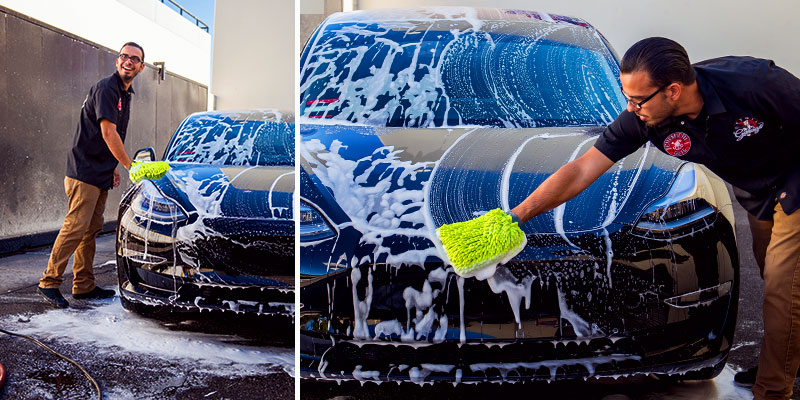Many eco-conscious car owners think that getting their vehicles washed at Mister Car Wash means more water used and, thus, wasted. But the truth is that they are wasting significantly more water than they think – and that will be against their eco-friendly lifestyle!
The Amount of Water Used
Of course, you cannot be blamed if you also believe that a do-it-yourself car wash at home will use less water than a professional car wash. You will, after all, see that the latter seems to spray more water and use more foaming detergent than the former. You may even think that the commercial high-pressure nozzles use more water, too, than your residential hose.
But you are mistaken! Studies have shown that an at-home car wash uses more than 100 gallons of water per vehicle – truly, a significant amount of water for such a small thing. In contrast, the number of gallons used in the following professional car washes are much less: (The number refers to the number of gallons used per vehicle)
- Regular tunnel car wash – 30 gallons
- In-bay automatic car wash – 50 gallons
- Self-service high-pressure wand car wash – 15 gallons for a regular 3-minute cycle
- Self-service foaming brush car wash – 2 gallons
- Touchless tunnel car wash – 80 gallons
With an at-home car wash, you will be using water hoses and detergents that don’t clean the build-up of dirt, dust and grime on your car as effectively and efficiently than those used in a professional car wash. You will then end up using more water to rinse off the first layer of build-up and then do a final rinse.
The Technology Used
There’s also the matter of waste water reclamation technology used by professional car washes. According to data gathered by the Alliance for Water Efficiency, modern car washes with water conservation technology in place use less than 1% of the water used in a large town. Most car washes also adopt additional water conservation measures when there are restrictions imposed by authorities, such as during droughts.
Water reclamation technology allows car washes to recycle and reuse water. For example, the water used in washing the cars will be filtered (i.e., reclaimed) so it can be reused for another cycle.
The EPA via the Clean Water Act also enforces strict regulations on water conservation in commercial car washes. These include the use of approved chemicals, which should either be completely biodegradable or can be treated in sewer treatment facilities, as well as sending waste water to a sewer treatment facility.
Before you pick up a bucket and brush for washing your car, you must then consider a professional car wash. You will not only save time and effort but, more importantly, you will also be saving on water
